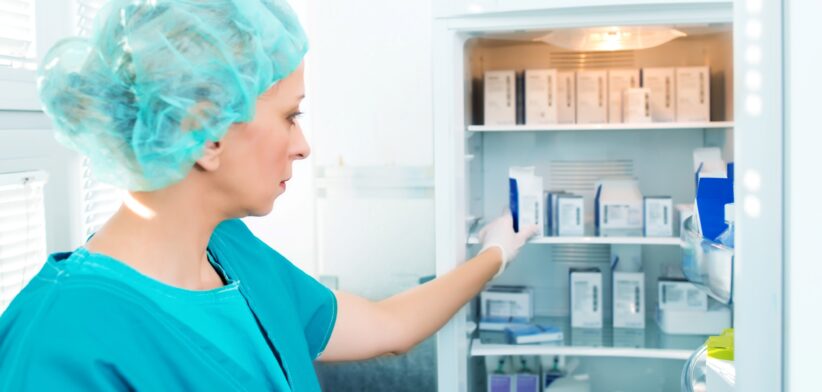A new approach to storing and transporting vital medicine aims to improve the outcomes for patients in remote and disadvantaged communities.
Scientists in the United Kingdom have developed a new process for crucial protein therapeutics that takes away they need for fridges or freezers.
University of Glasgow Professor Dave Adams said the breakthrough could significantly improve accessibility of essential protein-based drugs in developing countries where cold storage infrastructure may be lacking, helping efforts to diagnose and treat more people with serious health conditions.
Professor Adams said researchers from the Universities of Manchester, Glasgow and Warwick had designed a hydrogel – a material mostly made of water – that stabilises proteins, protecting its properties and functionality at temperatures as high as 50°C.
“The technology keeps proteins so stable that they can even be sent through the post with no loss of effectiveness, opening up new possibilities for more affordable, less energy-intensive methods of keeping patients and clinics supplied with vital treatments,” he said.
Professor Adams said protein therapeutics were used to treat a range of conditions, from cancer to diabetes and most recently to treat obesity and played a vital role in modern medicine and biotechnology.
“However, keeping them stable and safe for storage and transportation is a challenge. They must be kept cold to prevent any deterioration, using significant amounts of energy and limiting equitable distribution.”
He said the medicines also often included additives – called excipients – which must be safe for the drug and its recipients, limiting material options.
“In the early days of the Covid vaccine rollout, there was a lot of attention given in the news media to the challenges of transporting and storing the vaccines, and how medical staff had to race to put them in people’s arms quickly after thawing.
“The technology we’ve developed marks a significant advance in overcoming the challenges of the existing ‘cold chain’ which delivers therapeutic proteins to patients.”
He said the new process goes far beyond current hydrogel storage techniques’ abilities to withstand heat and vibration and could help create much more robust delivery systems in the future, which required much less careful handling and temperature management.








